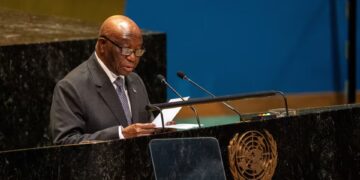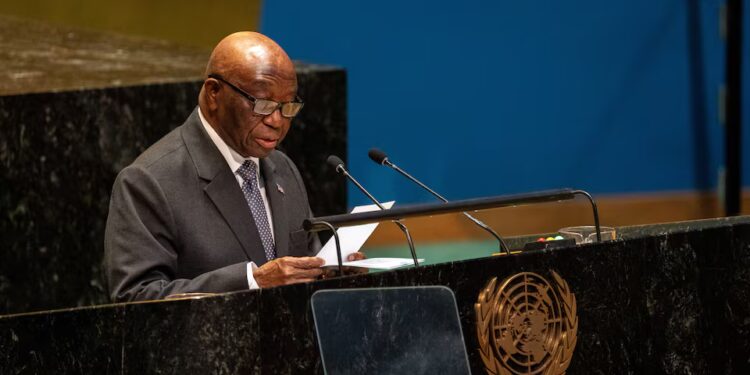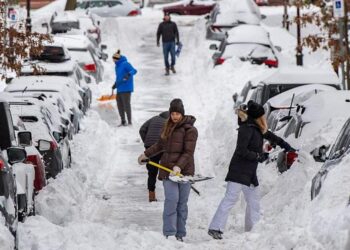By Enyichukwu Enemanna
Liberian President Joseph Boakai has tendered the government’s first apology to victims of war and floated what his administration calls an unprecedented reconciliation campaign, presiding over memorial services for two assassinated Presidents.
The high-profile ceremonies come more than two decades after the end of civil conflicts in which about 200,000 were killed and saw widespread war crimes, including massacres, rape, and the use of child soldiers.
The ceremonial services coincide with calls by human rights groups for domestic war crimes prosecutions, which are yet to start despite an executive order to establish a war crimes court last year.
At an event in the capital, Monrovia, Boakai tendered an apology where he also pledged to make July 5 an annual day of remembrance.
“To every victim of our civil conflict, to every family broken, to every dream shattered, we say: ‘We are sorry’,” he said.
In the lead-up to that event, Boakai attended a service honouring President Samuel Doe, who took power in a coup in 1980 and died at the hands of fighters loyal to warlord Prince Johnson in 1990, less than a year after fighting broke out in Liberia.
Johnson, who died last year, went on to become a senator and political kingmaker, highlighting what critics describe as entrenched impunity.
Boakai also recently spoke at a reburial service for President William Tolbert, who was executed in the 1980 coup. That putsch also saw the public executions of 13 members of Tolbert’s cabinet on a beach in Monrovia.
“It still hurts,” said Charlotte Stewart, whose father, former budget director Frank J. Stewart, was among the 13 senior officials killed.
“I really do believe that it will bring some closure.”
Liberia’s Truth and Reconciliation Commission in 2009 issued a final report recommending war-related prosecutions at an extraordinary criminal court, but none have taken place on Liberian soil.
Last year Boakai signed an executive order to establish a war crimes court, and in April he renewed the order as it had been due to expire.
Alain Werner, director of the Geneva-based group Civitas Maxima that has successfully pushed for the prosecution of several Liberians in foreign courts, said Boakai should do more to make the local court operational.
“It is great he is apologising. Others before him did not do that and it is important for the victims and survivors,” Werner said.
“But he should also ensure the office for the war crimes court gets the money it needs to function as soon as possible for the work to start in earnest, finally.”
Yvette Chesson Wureh, daughter of former Justice Minister Joseph Chesson who was killed in the 1980 coup, called on Liberia to confront its history.
“Justice was denied. And with it, the principles of fairness and humanity that should define us as a people.”



































